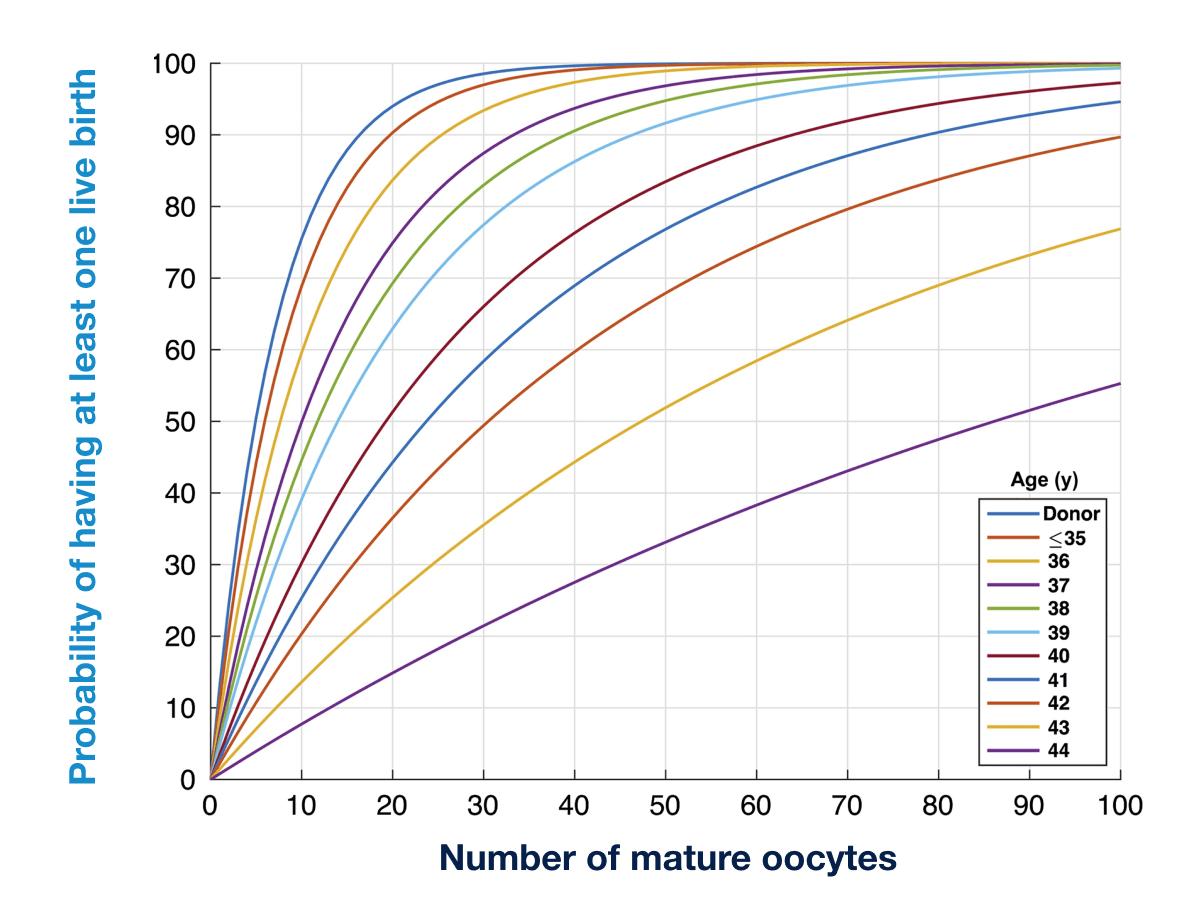Egg Freezing in Your 20s vs. 30s: What to Know About Timing, Success Rates, and Cost

In the last decade, egg freezing—also known as oocyte cryopreservation—has become an increasingly common fertility preservation option for women across the United States. Nearly 14,000 women elected to freeze their eggs in 2018 alone, according to the Society for Assisted Reproductive Technology (SART). But when is the best time to freeze your eggs—your 20s or 30s?
Here at the UCSF Center for Reproductive Health, we specialize in helping people make informed choices about their fertility future. If you're considering egg freezing, understanding the biological, emotional, and financial differences by age can help you take the next step with confidence.
Biological Differences: Egg Quality and Quantity
One of the most important factors influencing egg freezing success is age. Women are born with a finite number of eggs that decrease in both quality and quantity over time. As Dr. Eleni Greenwood Jaswa explains, “Women's fertility peaks in the 20s, with a 20–25% chance of conception per month. By age 40, that number drops to around 5%.”
- In your 20s: Eggs are generally higher in quality and more abundant. Freezing at this age typically yields more viable eggs in a single cycle.
- In your 30s: Egg quantity and quality begin to decline, especially after age 35. More than one cycle may be needed to retrieve enough eggs for future use. Learn more about egg quality and egg quantity on our website.

BWH Egg Freezing Counseling Tool (EFCT)
Please note: These are estimates taken from outcomes of patients with infertility, NOT specifically on patients coming back to use previously frozen eggs; therefore, they likely represent an overestimate of the number of eggs actually needed.
Egg Freezing Success Rates: Does Timing Matter?
Yes—the age at which you freeze your eggs is the most important predictor of future success. Eggs frozen at younger ages are more likely to result in healthy embryos and pregnancies when used later.
While egg freezing can increase your chances of having a biological child later in life, it's not a guarantee. Studies have shown, only 10–15% of women who freeze their eggs return to use
them. At UCSF, our physicians will help you interpret your unique numbers during your consultation and explain what they mean for your reproductive goals.
Emotional Considerations: Planning for the Future
Making a decision about egg freezing is not just clinical—it’s emotional. A 2023 study led by UCSF researchers showed that 9% of women who froze eggs experienced moderate-to-severe regret, while 51% of those who decided against freezing eggs regretted their choice. Access to accurate information and clarity about future family-building were associated with lower regret.
Whether you’re focused on your career, waiting for the right partner, or just exploring your options, egg freezing may offer a sense of empowerment. But it’s not a one-size-fits-all solution. Our team at UCSF is here to support you in making the choice that feels right for you.
Read the study: Decision Regret Among Women Considering Egg Freezing
Financial Considerations: Egg Freezing Costs
Cost is a major factor in deciding whether and when to freeze your eggs. Here's a breakdown of the cash-pay rates at UCSF:
- Egg Freezing Cycle: $8,000 – $9,000
- Medications: $4,000 – $6,000
- Anesthesia: $816
- Total Estimated Cost: $12,900 – $15,900
Financing Options Available
We partner with fertility financing providers like Future Family and ARC Fertility to make this process more accessible. Payment plans start at:
- Egg Freezing: ~$150/month for 60 months
- IVF: ~$300–$475/month for 60 months.
We also offer a complimentary consultation with one of our expert financial navigators to walk you through your options.
Is Egg Freezing Right for You?
At UCSF Center for Reproductive Health, we work with patients of all ages and social circumstances to discuss egg freezing and fertility preservation. While the procedure may be most effective in your 20s or early 30s, we regularly counsel patients in their late 30s and 40s to help them understand their individual options.
Freezing your eggs can offer reproductive freedom, but it's not an insurance policy—it’s a tool, one of many, to help you build the future you envision.
Ready to learn more about your fertility potential?
Call us at (415) 353-7475 or visit crh.ucsf.edu/appointments to schedule your consult today.
About Blog
There are many causes of infertility. For a successful pregnancy to occur, a healthy egg needs to meet healthy sperm, fertilize, develop and find a good place to grow (a receptive uterus). Problems at any of these steps can cause difficulties in getting pregnant. A woman’s body might not release an egg each month due to hormone imbalances, or perhaps the man’s body isn’t producing enough motile sperm.